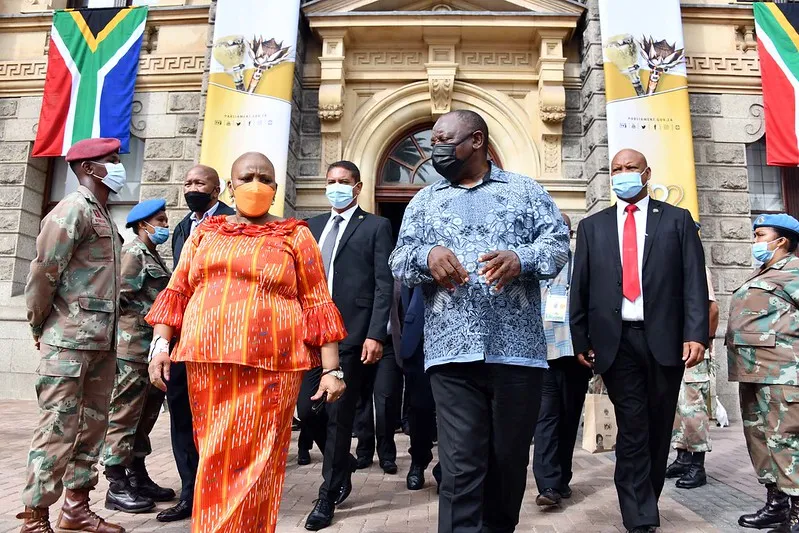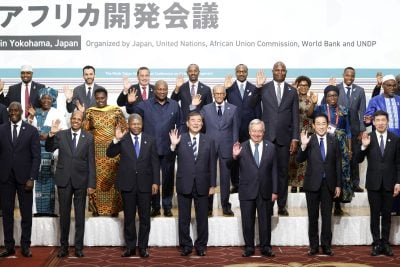South Africa President Cyril Ramaphosa used his annual State of the Nation Address to insist that only an urgent shift to private-sector led growth can help the country recover from the devastating effects of the Covid-19 pandemic and mounting unemployment.
“We all know that government does not create jobs, businesses create jobs…The key task of government is to create conditions that will enable the private sector. This is the case whether we like it or not all over the world…government creates that environment that will enable businesses small and big to emerge, to grow, to access new markets, create new products and hire more employees.”
Speaking at City Hall in Cape Town after the devastating fire at Parliament, the usual State of the Nation venue, Ramaphosa said that only a wide-ranging bid to enable investment could save the country from deepening unemployment and long-term economic decline. A new government ‘red tape team’ will roll back regulations for small and large businesses, he said.
“The present situation we are in now of deep poverty, unemployment and inequality is unacceptable and unsustainable. Fundamental change and reforms are needed to revive economic growth in our country…Last year unemployment reached the highest recorded level, caused by low growth which has resulted from a long term decline in investment in our economy which has lasted a number of years.”
The President estimated that a further 2m workers had been laid off since the pandemic. The official unemployment rate was 34.9% in the third quarter of 2021, and the IMF expects growth of just 1.9% this year after 5% growth last year, following a 6.4% contraction in 2020. The President said that government reforms to electricity utility Eskom, state freight company Transnet as well as municipal water systems and passenger rail services, would underpin his agenda.
“We are accelerating implementation of far-reaching structural reforms with a view to modernising and transforming these industries to unlock investment and reduce the costs of doing business and increase competitiveness to heighten growth in our economy.”
Ramaphosa said that he had given his administration 100 days to finalise a comprehensive social compact to grow the economy, create jobs and combat hunger. The latest plan would build on 2021 priorities including a massive rollout of infrastructure, a substantial increase in local production, additional employment stimulus, and a rapid expansion of energy generation, he said.
Ramaphosa said he hoped to end the country’s National State of Disaster, implemented during the pandemic, as soon as other legislation is brought in to manage the health crisis. He said that the country had administered some 30m doses of Covid-19 vaccines, while nearly 42% of all adults are fully vaccinated.
Peter Attard Montalto, head of capital markets research at Intellidex, said that the “endurance test of a 110 minute speech” might not bring the clarity to business that Ramaphosa had hoped for.
“One gets the impression of a range of reform pressures mounting up on the economy to budge it forward but still not really moving the dial – yet. Here-in is the problem for the markets, investors and business considering the speech. You either believe that the dial will move soon or you don’t. History suggests less rather than more dial moving – yet equally we would highlight the markets probably do underestimate quite how much is going on.”
But the President’s honest assessment of the country’s outlook without significant reform drew praise from other commentators.
Want to continue reading? Subscribe today.
You've read all your free articles for this month! Subscribe now to enjoy full access to our content.
Digital Monthly
£8.00 / month
Receive full unlimited access to our articles, opinions, podcasts and more.
Digital Yearly
£70.00 / year
Our best value offer - save £26 and gain access to all of our digital content for an entire year!
 Sign in with Google
Sign in with Google 



